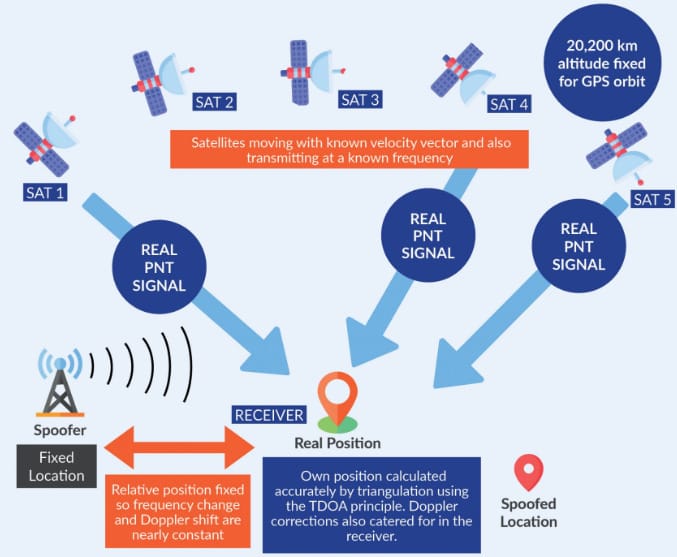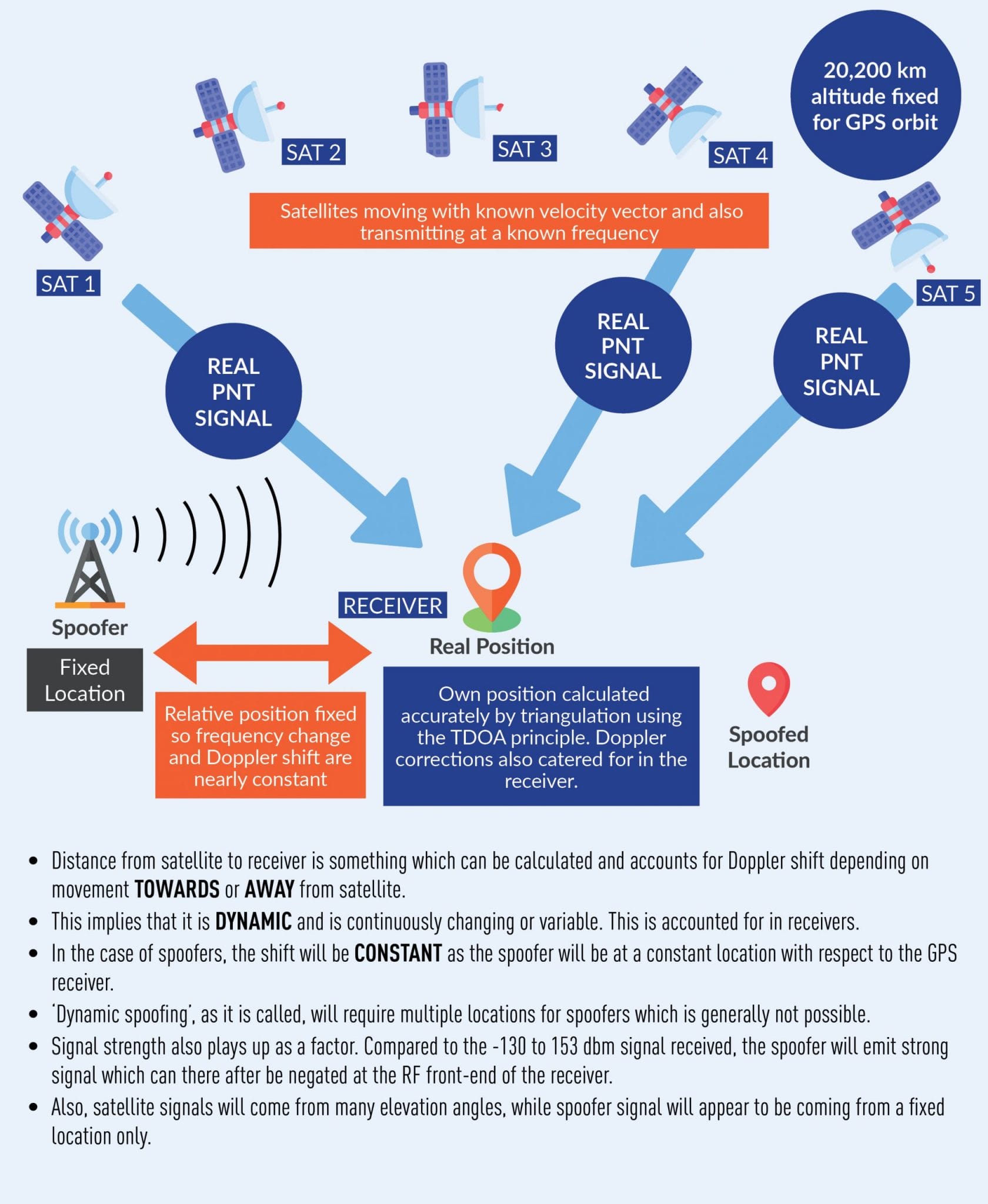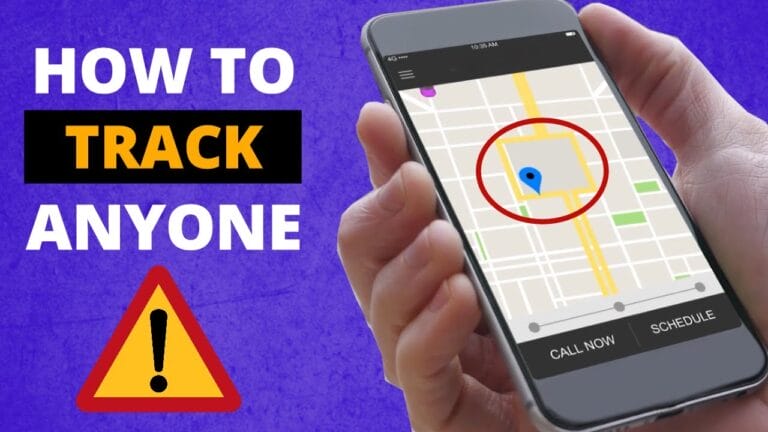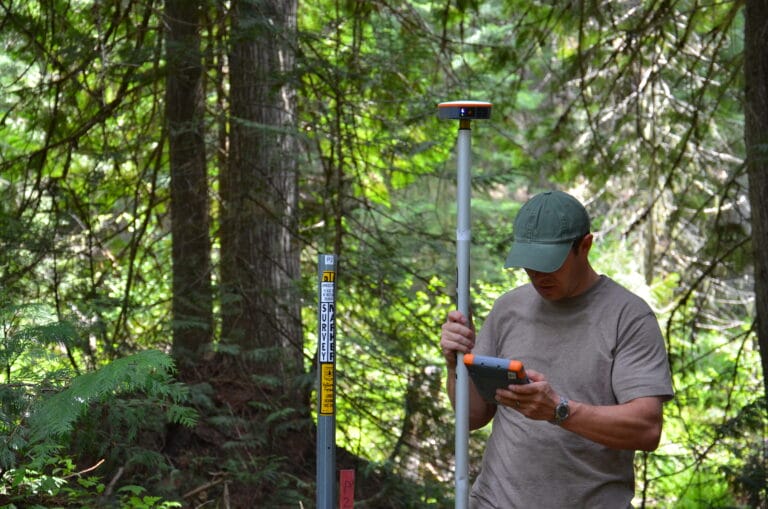
Have you ever wondered how intentional jamming affects GPS signals? Well, you’re in the right place! In this article, we’re going to dive into the world of intentional jamming and explore its impact on GPS signals. So, fasten your seatbelts and get ready for an exciting journey!
GPS, or Global Positioning System, is a technology that relies on a network of satellites to provide precise location and navigation information. But what happens when someone intentionally interferes with these signals? That’s where intentional jamming comes into play.
Intentional jamming refers to the deliberate act of sending radio frequency signals to disrupt or block GPS signals. Whether it’s for nefarious purposes or simply to cause chaos, intentional jamming can have serious consequences.
So, let’s uncover the mysteries behind intentional jamming and understand how it affects GPS signals.

How Does Intentional Jamming Affect GPS Signals?
GPS signals can be severely impacted by intentional jamming. This interference disrupts the communication between GPS satellites and devices, resulting in inaccurate positioning and navigation data.
Jamming devices transmit signals at the same frequency as GPS signals, overpowering them and causing receivers to lose their connection.
This deliberate action can have serious consequences, affecting various industries reliant on GPS technology, such as transportation and emergency services.
Understanding the implications of intentional jamming is crucial in mitigating potential risks and ensuring the reliability of GPS systems.
Basics of GPS and Intentional Jamming
Before delving into the effects of intentional jamming on GPS signals, it’s important to understand the basics of GPS technology and how intentional jamming works. GPS relies on a network of satellites that transmit signals to receivers on the ground.
These signals allow GPS receivers to determine their precise location, velocity, and time. Intentional jamming involves transmitting radio signals in the same frequency range as GPS signals, either by overpowering the GPS receivers or by sending false signals that confuse the receivers. The intention behind jamming can vary, from criminal activities to military operations.
1. Impact on Navigation Systems
Intentional jamming can severely disrupt navigation systems that rely on GPS signals. For example, in the aviation industry, pilots heavily rely on GPS for precise navigation, especially during instrument approaches and landings.
In the event of intentional jamming, the accuracy and integrity of the GPS signals can be compromised, leading to incorrect position information or loss of GPS reception.
This can endanger the safety of flights and result in potential accidents. Similarly, ships, trains, and vehicles equipped with GPS navigation systems can experience navigation issues, causing delays and possible detours.
Moreover, individuals using GPS devices for personal navigation or fitness tracking can be affected by intentional jamming. Hikers, runners, and cyclists who rely on GPS for tracking their routes and performance may find themselves unable to accurately determine their location or measure their progress. This can lead to inconvenience, frustration, or even safety risks if they are relying on GPS for emergency situations.
In summary, intentional jamming can disrupt navigation systems in various industries, posing risks to safety, efficiency, and reliability.
2. Implications for Logistics and Supply Chain Management
Another industry greatly impacted by intentional jamming is logistics and supply chain management. GPS plays a crucial role in tracking the movement of vehicles, goods, and shipments throughout the supply chain.
If GPS signals are intentionally jammed, it can lead to significant disruptions in the logistics operations. For instance, companies heavily rely on GPS to optimize routes, monitor delivery times, and ensure timely arrivals of goods. Jamming GPS signals can result in delays, missed deadlines, and logistical inefficiencies.
Furthermore, intentional jamming can be used as a method of hijacking or stealing cargo. By interfering with GPS signals, criminals can manipulate tracking systems and divert shipments to unauthorized locations. This can lead to significant financial losses for companies and compromises the safety and security of the supply chain.
As a result, businesses in the logistics and transportation industry need to implement robust security measures to mitigate the risks posed by intentional jamming.
The implications of intentional jamming on logistics and supply chain management highlight the need for advanced security measures and backup systems to ensure the uninterrupted flow of goods and optimize operational efficiency.
3. Threats to National Security
Intentional jamming of GPS signals also poses threats to national security. Military operations heavily rely on GPS for various applications, including navigation, targeting, and time synchronization.
Deliberate jamming of GPS signals can disrupt military missions, compromise situational awareness, and jeopardize the success of operations. It can also create opportunities for adversaries to manipulate or misdirect military forces.
Moreover, critical infrastructure such as power grids, telecommunications networks, and emergency response systems also rely on GPS for synchronization and accurate timing.
Intentional jamming can disrupt these systems, leading to cascading failures and potential vulnerabilities. Protecting GPS signals from intentional jamming is crucial for maintaining the integrity and effectiveness of military operations and national infrastructure.
Given the potential threats to national security, efforts are being made to develop advanced anti-jamming technologies and improve resilience in GPS systems to counter intentional jamming.
Frequently Asked Questions
Intentional jamming can have a significant impact on GPS signals. Below, we answer some common questions about how intentional jamming affects GPS signals.
1. What is intentional jamming and how does it affect GPS signals?
Intentional jamming refers to the deliberate interference with GPS signals by transmitting radio frequency signals on the same frequencies as GPS.
This interference disrupts and overwhelms the weak GPS signals, making it difficult for GPS receivers to accurately determine their position. As a result, intentional jamming can cause GPS devices to provide inaccurate position, velocity, and timing information.
GPS receivers need to receive signals from multiple satellites to accurately calculate position. When intentionally jammed, the GPS signals become weak, distorted, or completely disrupted, making it challenging for GPS receivers to obtain the required satellite signals for positioning. This can result in navigation errors and can even render GPS devices ineffective in certain areas.
2. Are there any legal consequences for intentional jamming?
Intentional jamming of GPS signals is illegal in most countries, as it can pose a serious threat to public safety and critical infrastructure.
In the United States, intentional jamming is a federal crime punishable by substantial fines and imprisonment. Additionally, many countries have laws that prohibit the sale, possession, or use of GPS jammers.
Intentional jamming not only interferes with GPS devices but can also disrupt communication systems relying on GPS, such as aviation, maritime, and emergency services. These legal consequences are in place to ensure the integrity and reliable functioning of GPS systems, as they play a vital role in various sectors of society.
3. How can intentional jamming be detected?
Detecting intentional jamming can be challenging because jammers can transmit signals over a wide range of frequencies and power levels.
However, there are techniques and technologies designed to detect and mitigate jamming effects. One such technique is monitoring the power levels of GPS signals in different frequencies. Sudden decreases or unusual fluctuations in signal strength can indicate the presence of intentional jamming.
Another approach to detecting intentional jamming is the use of geolocation techniques. By comparing the received GPS signals from multiple locations, it is possible to identify the source of the jamming signal. This information can then be used by law enforcement agencies to apprehend those responsible for the jamming activity.
4. How can GPS receivers protect against intentional jamming?
GPS receiver manufacturers are continuously working on improving their devices to mitigate the effects of intentional jamming.
Some GPS receivers now employ signal filtering techniques to reduce the impact of jamming signals. These filters can remove unwanted signals and improve the receiver’s ability to accurately process GPS signals.
In addition to signal filtering, some GPS receivers can also employ anti-jamming technologies. These technologies use encryption and sophisticated algorithms to detect and reject jamming signals, allowing the receiver to maintain accurate positioning even in the presence of intentional jamming.
5. What are the potential consequences of intentional jamming?
Intentional jamming can have serious consequences in various sectors. In aviation, for example, the interference caused by intentional jamming can disrupt aircraft navigation systems, potentially leading to incorrect flight paths and compromised safety.
In emergency services, interrupted and inaccurate GPS signals can hinder timely response coordination and adversely affect search and rescue operations.
Additionally, intentional jamming can impact commercial sectors that rely on GPS, such as transportation and logistics. Disrupted GPS signals can result in delivery delays, the inability to track assets, and increased operational costs. It is crucial to address intentional jamming to ensure the smooth functioning of systems that depend on reliable GPS signals.
GPS signals are important for navigation, but intentional jamming can mess them up. Jamming devices can disrupt or block the signals, causing problems for GPS receivers.
This can impact various sectors like transportation, emergency services, and even everyday navigation. The government and engineers are working on ways to strengthen GPS signals and make them more resistant to jamming. It’s important to be aware of the potential risks and keep up with advancements in GPS technology.






